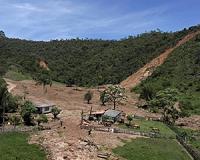| . |  |
. |
Ottawa (AFP) May 19, 2011 AquaFed, the world's main corporate water lobby association, on Thursday rejected accusations that corporate interests risk gaining too much influence over UN water policies. A report prepared for the Council of Canadians, the largest NGO in Canada, and endorsed by 139 organizations was sent to the UN and opposed "the increasingly widespread lobbying of the United Nations by transnational water corporations." The organizations said the UN should reject an application for official consultative status from AquaFed, saying it could lead to potential conflicts of interest in addressing the global water crisis. AquaFed, or the International Federation of Private Water Operators, responded that these organizations had distorted the work of its 300 member companies, which provide potable water for hundreds of millions of people. The largest are Veolia, Suez, Agbar and Saur. These companies, said AquaFed, support the UN's recognition last year that access to clean water and sanitation is a human right, a move hailed by water advocates as a momentous step toward a future treaty. But the association estimates the number of people who lack access to safe drinking water at four billion, more than four times the figure officially cited. And, it says, all hands, including the private sector will be needed to work to alleviate growing water shortages. "Public institutions will have to mobilize all parties to address growing water issues," AquaFed said in a statement. "AquaFed is not profit-driven," it added. "Its goal is to offer solutions to numerous water problems by bringing the know-how and expertise of the private sector to the international community." The issue of its status at the UN is being considered at a meeting of the UN's Economic and Social Council.
earlier related report The report prepared for the Council of Canadians, the largest NGO in Canada, and endorsed by 139 organizations was sent to the UN and opposed "the increasingly widespread lobbying of the United Nations by transnational water corporations." The organizations said the UN should reject an application for official consultative status from the main corporate water lobby association, known as Aquafed. So-called consultative status "is a way to hear the voices of social movements and civil society around the world. It should not be allowed to become a way for corporations to try and influence global water policy," said Council of Canadians chairperson Maude Barlow. "It is important that we let the UN know this is unacceptable." "No one is opposed to the United Nations working with water corporations to encourage conservation and the search to reduce the world's collective water footprint," Barlow said in the report. "The concern is that the relationship between the highest levels of the United Nations and the private water sector legitimizes the growing influence of these corporations on policy, both at the UN and at the nation-state level, which in turn promotes a private market system for water delivery and access at the expense of the public and the poor." Julie Larsen, author of the report, said that "based on my review of water governance at the UN, I feel that the imbalance in power, influence, and money that come with engaging the private sector must be addressed head-on to prevent serious conflicts of interest." The report said the UN's Economic and Social Council (ECOSOC) should be a forum "that is free from corporate conflicts of interest." "To surmount the global water crisis, the UN must assure a formal, transparent and democratic space in which governments can advance the best possible sustainable strategies to protect water as a public good," it said. Those endorsing the report included US-based Food and Water Watch, France's Libertes Foundation, Canada's Polaris Institute and Italy's Mani Tese. The UN General Assembly last year recognized access to clean water and sanitation as a human right, a move hailed by water advocates as a momentous step toward a future treaty. It expresses deep concern that 884 million people lack access to safe drinking water and that more 2.6 billion do not have access to basic sanitation.
Share This Article With Planet Earth
Related Links Water News - Science, Technology and Politics
 How rainfall and landslides dried up Panama's drinking water
How rainfall and landslides dried up Panama's drinking waterPanama City, Panama (SPX) May 19, 2011 To understand the long-term effects of a prolonged tropical storm in the Panama Canal watershed, Robert Stallard, staff scientist at the Smithsonian Tropical Research Institute and research hydrologist at the U.S. Geological Survey, and Armando Ubeda, the LightHawk Mesoamerica program manager, organized four flights over the watershed to create a digital map of landslide scars. Two feet of ... read more |
|
| The content herein, unless otherwise known to be public domain, are Copyright 1995-2010 - SpaceDaily. AFP and UPI Wire Stories are copyright Agence France-Presse and United Press International. ESA Portal Reports are copyright European Space Agency. All NASA sourced material is public domain. Additional copyrights may apply in whole or part to other bona fide parties. Advertising does not imply endorsement,agreement or approval of any opinions, statements or information provided by SpaceDaily on any Web page published or hosted by SpaceDaily. Privacy Statement |